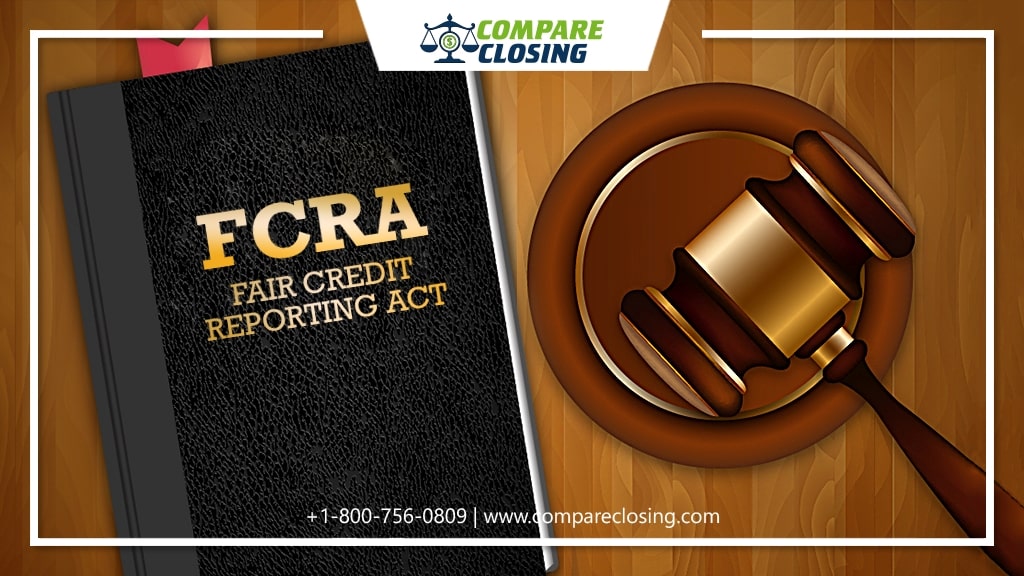Table of Contents
- What Are Netting Escrows & How Does It Work?: The Best Guide - January 2, 2024
- The Secret About Prescriptive Easement: Top Guide 1 Must Know - December 4, 2023
- About Home Equity Loans In Texas And How Can One Obtain It - November 27, 2023
Introduction to Fair Credit Reporting Act
Many consumers may not be aware or just beginning to become aware of the power and influence that these credit bureaus have over the market.
If you are diving into the realm of credit repair or building credit you are aware of the powers credit bureaus like Transunion, Experian, and Equifax have over our ability to get extensions of credit.
However, as a consumer, there are few rights that you have under the Fair Credit Reporting Act. In this post, we will understand what is the Fair Credit Reporting Act (FCRA) in detail.
What is the Fair Credit Reporting Act (FCRA)?
The credit agencies got so powerful that in October of 1970 congress passed a piece of legislation called the FCRA act.
This and many other legislations were used to curb the power the credit bureaus had over the market.
The FCRA was created to give the consumers in the law protection against unfair and inaccurate reporting on a consumer report.
It defines how the credit reporting industry should operate. Fair credit reporting act is a statute that gives consumers the right to do certain things concerning their credit reports and their credit scores.
Understanding the Fair Credit Reporting Act
The first right that a consumer gets is that they have the right to free copies of the credit reports every twelve months.
However, nowadays these credit reporting agencies are also providing free credit report copies weekly instead of giving them annually.
This means that you as a consumer can pull your credit fifty-two times in a year from each one of the credit bureaus.
The next thing covered in the FCRA law is restricted access to your credit reports. A company has to have a legitimate reason for pulling your credit report and under the FCRA it is known as a permissible purpose.
A few examples of permissible purposes are: If you are applying for a job, the employer has a permissible purpose to pull your credit.
If you apply for insurance, the insurance company has a permissible purpose to pull your credit. If any company is attempting to collect a debt, they can pull a credit report under FCRA permissible purpose.
If you as a consumer want a copy of your credit report, you have a permissible purpose. The most common use is in the lending business, where a consumer applies for a loan, and the lender has a permissible purpose to pull your credit to check your creditability.
The next right under FCRA is the right to challenge information on your credit report with which you disagree. This under the fair credit reporting act is referred to as the dispute resolution process.
If you have something on your credit report that you feel is wrong like an account that you think is not yours, or balance is wrong, or a collection that you say you have paid or settled.
If it is not reflected as such in your credit report, you as a consumer have a right to challenge that information and the credit reporting agencies have to perform a reasonable investigation in response to your dispute.
The entire dispute resolution process is free of cost when you challenge any information on your credit report with the credit reporting agencies.
In the FCRA you have a lot of fraud protection. You can place a fraud alert on your credit report free of cost.
You can also place a security freeze on your credit report free of cost. A security freeze is an option where you put your credit report out of circulation to be pulled by any organization until you choose to put it back into circulation.
If you have an item on your credit report that is agreed by the lender, the credit report agencies, and you that it was caused because of fraud, the credit bureaus have to block the reporting of that account.
Conclusion
The Fair Credit Reporting Act was created to protect and provide rights to the consumers for their credit reporting.
Knowing about these rights will help you to be a more responsible credit user and also ensure what rights you have if any unfair credit practices have occurred on your credit report.
Keeping a tab on your credit report and scores will keep you aware of your creditworthiness in the market.
Amanda Byford
Amanda Byford has bought and sold many houses in the past fifteen years and is actively managing an income property portfolio consisting of multi-family properties. During the buying and selling of these properties, she has gone through several different mortgage loan transactions. This experience and knowledge have helped her develop an avenue to guide consumers to their best available option by comparing lenders through the Compare Closing business.





